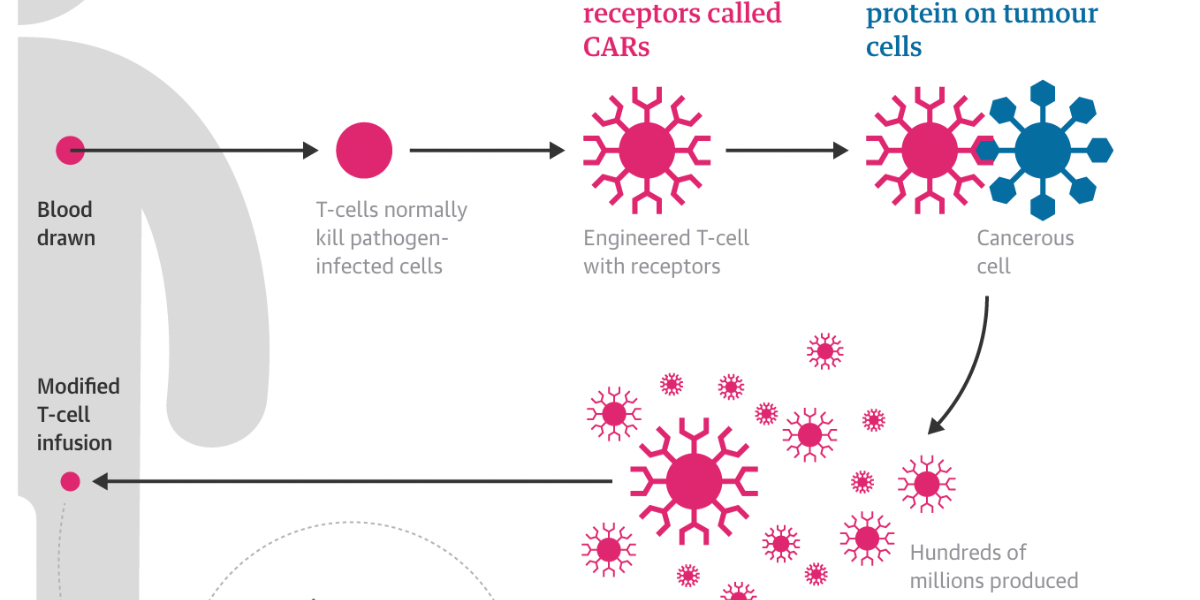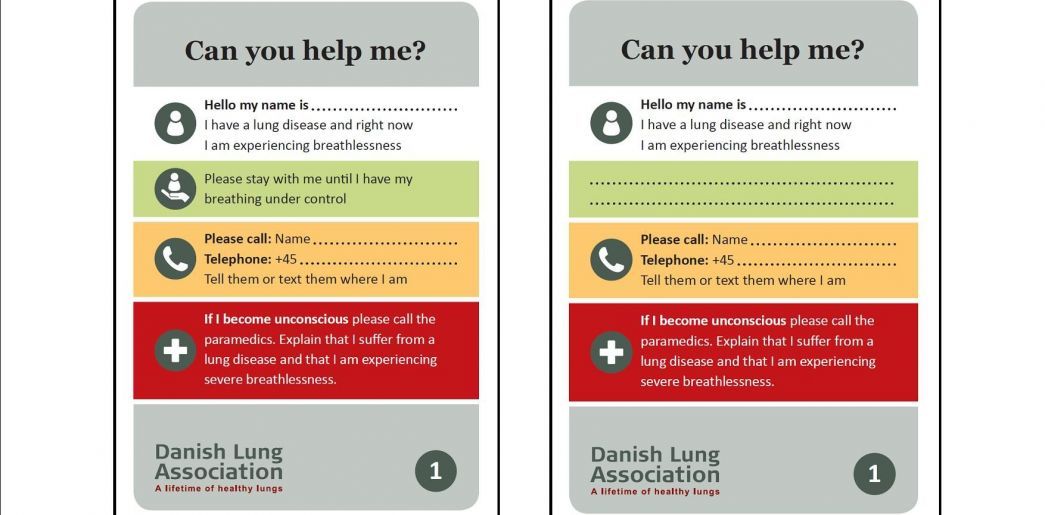AÑO
2023
CATEGORÍA
Cuerpo
OBJETIVOS
Salud y bienestar
PAL. CLAVE
cancer treatment, chimeric antigen receptor, T-cell, T-cell therapy
PAÍS
United States of America
CRÉDITOS
Dr Martin Pule
LINK
https://www.theguardian.com/society/2022/feb/02/first-patients-pioneering-car-t-cell-therapy-cured-of-cancer
CAR T-cell therapy
CAR T-cell therapy recognise and destroy cancer cells.
How does it work?
CAR – chimeric antigen receptor – T-cell therapy works by genetically engineering an individual’s T-cells to recognise and destroy cancer cells. T-cells are a type of white blood cell that can recognise and destroy foreign cells, including cancer cells, but because cancer is very good at evading immune detection, they often miss their mark. CAR T-cells are engineered to make them better at detecting cancer cells. In the UK the therapy is approved for use in children and young adults with B-cell acute lymphoblastic leukaemia (ALL) and adults with certain types of lymphoma – both are blood cancers. In trials, CAR-T therapy has been extraordinarily successful, putting patients into remission who had months to live, but the long-term effects had not been extensively studied.
Why is it needed?
Prof Martin Pule, the director of the UCL Cancer Institute CAR T-cell programme, described the paper as a landmark. “A decade ago, CAR T-cell therapy was a therapeutic approach explored by a very small number of scientists and was considered a fringe approach and unlikely to work,” he said. “This paper shows us that CAR T-cells can give patients with cancers which no longer respond to chemotherapy remissions which last a decade.” CAR-T therapy does not work for all patients or for all types of cancers. It is also labour-intensive and expensive, although June said the costs would come down. Pule said: “Solid cancers are harder to treat with CAR T-cells because they surround themselves with proteins and cells which shield them from the immune system. This is called the ‘tumour microenvironment’. We know that CAR T-cells can work well against solid cancer.
How does it improve life?
Two of the first human patients to be treated with a revolutionary therapy that engineers immune cells to target specific types of cancer still possess cancer-killing cells a decade later with no sign of their illness returning.



